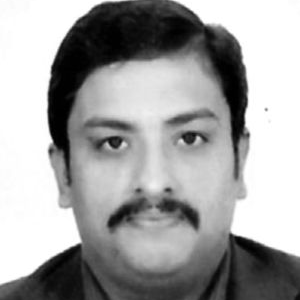Intelligence Computing Paradigms with Remote Sensing Networks in Water Hydrology
A special issue of Remote Sensing (ISSN 2072-4292).
Deadline for manuscript submissions: closed (31 December 2019) | Viewed by 4635
Special Issue Editors
Interests: Internet of Things; computational intelligence; sustainable computing
Special Issues, Collections and Topics in MDPI journals
Interests: artificial intelligence; machine learning; cybersecurity and privacy; cyber-physical systems; Internet of Things
Special Issues, Collections and Topics in MDPI journals
Interests: ambient intelligence and computational intelligence; remote sensing
Special Issue Information
Dear Colleagues,
Recently, we have been witnessing a need for intelligent computing paradigms, such as Computational Intelligence (CI), big data, the Internet of Things (IoT), with remote sensing techniques, which are illustrating more attention to water hydrology science and related research issues. Groundwater is a significant source of human activities, agriculture, and industry. Consequently, the ability to forecast the behaviour of chemical pollutes in flowing groundwater would be of dynamic importance for the trustworthy valuation of hazards or risks arising from groundwater pollution problems. In view of this, this Special Issue is mainly focused on the design of intelligent predictive water quality models by combining traditional grab sampling and chemical analysis with continuous monitoring based on CI, IoT, big data analytics, and hyper-spectral Earth observation satellite imagery data. Currently, machine learning algorithms and big data analytic approaches are used to develop models between traditional water quality parameters and cost effective surrogate measures derived from sensors or satellite imagery that can predict spatial-temporal water quality dynamics (i.e., rapid changes in concentrations and loads). In this Special Issue, advanced techniques for estimation and modelling using Geographical Information System (GIS) and remote sensing data of water resources is presented.
Prior research has highlighted the importance of water quality dynamics of pollutants by developing novel surrogate models, currently not applied to predicting pollutant loads, processes and transport conditions. Ground water quality prediction will lead to develop more complex waterway simulations for evaluating the interactions and effects of these pollutants with respect to different environmental conditions. The Special Issue will combine various research areas, such as CI, IoT, big data analytics, remote sensing, humanitarian engineering, water quality and hydrology. Papers showing novel and/or relevant techniques to propose intelligent water quality models via remote sensing networks, or some interesting applications in any subfields of ground water hydrology, will be considered. Well-prepared review papers are also welcome.
Topics of interest include, but are not limited to:
- Research on intelligence computing models for water quality protection
- Remote sensing network to support for water quality monitoring and management
- GIS based hydrology and water quality modelling to support sustainable water management
- Intelligent decision support system for predictive water quality monitoring
- Algorithms and techniques for interpreting urban remote sensing data(e.g., machine learning)
- Water quality management using drones and satellites in sustainable environment
- Internet of Things, big data and interventions to support sustainable ground water pollution management
- Geospatial modelling of in-situ river water conservation systems
- Sustainable wastewater treatment and pollution control
- Water reclamation and reuse
- Sensors for monitoring in hydrology and water resources
Dr. Arun Kumar Sangaiah
Dr. Houbing Song
Dr. Faiyaz Doctor
Dr. Martin Pritchard
Guest Editors
Manuscript Submission Information
Manuscripts should be submitted online at www.mdpi.com by registering and logging in to this website. Once you are registered, click here to go to the submission form. Manuscripts can be submitted until the deadline. All submissions that pass pre-check are peer-reviewed. Accepted papers will be published continuously in the journal (as soon as accepted) and will be listed together on the special issue website. Research articles, review articles as well as short communications are invited. For planned papers, a title and short abstract (about 100 words) can be sent to the Editorial Office for announcement on this website.
Submitted manuscripts should not have been published previously, nor be under consideration for publication elsewhere (except conference proceedings papers). All manuscripts are thoroughly refereed through a single-blind peer-review process. A guide for authors and other relevant information for submission of manuscripts is available on the Instructions for Authors page. Remote Sensing is an international peer-reviewed open access semimonthly journal published by MDPI.
Please visit the Instructions for Authors page before submitting a manuscript. The Article Processing Charge (APC) for publication in this open access journal is 2700 CHF (Swiss Francs). Submitted papers should be well formatted and use good English. Authors may use MDPI's English editing service prior to publication or during author revisions.
Keywords
- water quality
- remote sensing
- computational intelligence
- big data analytics
- internet of things
- wireless sensor networks
- hydrology science







